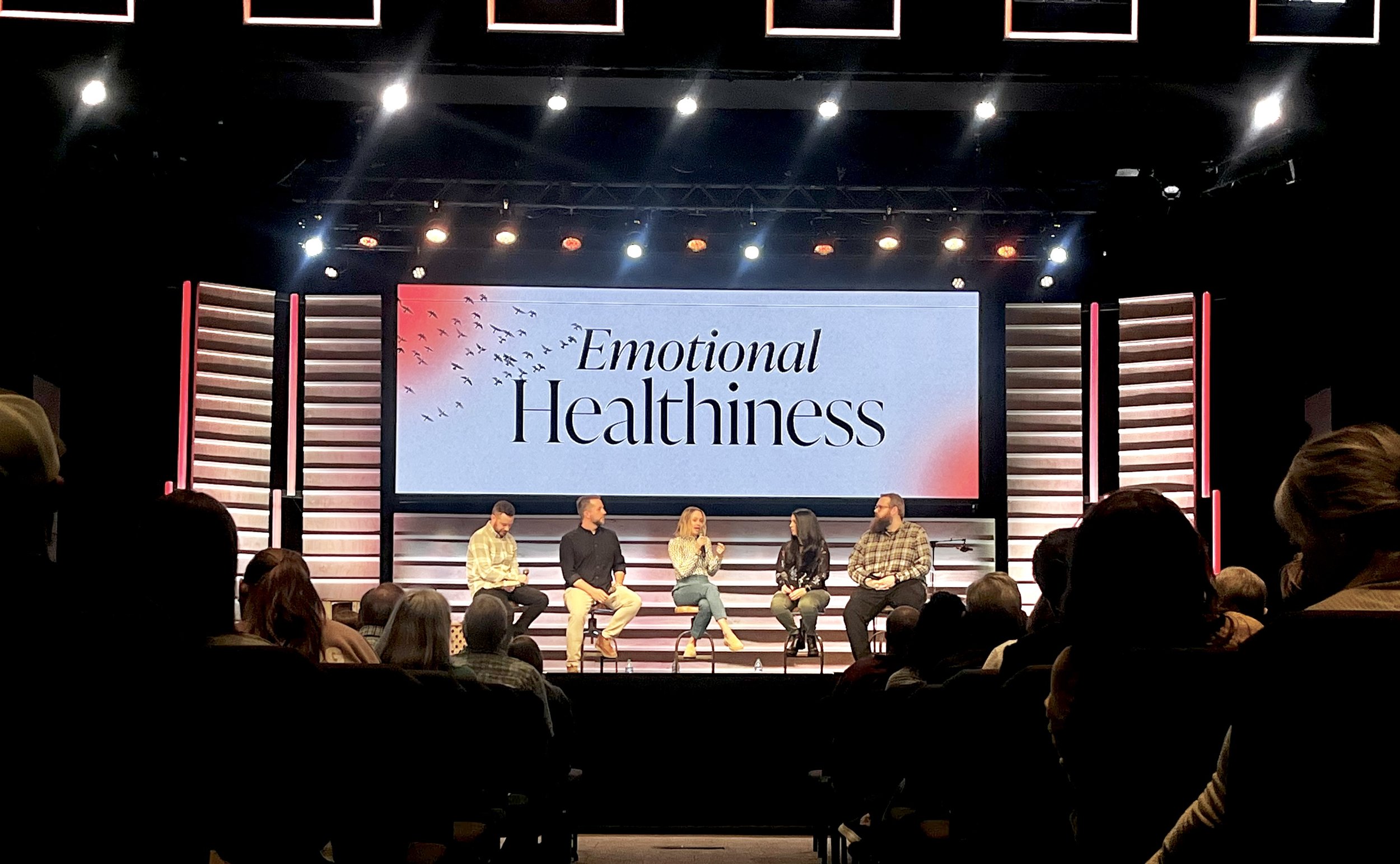Anxiety & Stress Lab with West Ridge Church
Thank you so much to the West Ridge Church Care Team for the honor and opportunity to spend the evening with you for your Emotional Healthiness Lab on Anxiety and Stress this week! It was an incredible event, and we’re big fans! Our team enjoyed sharing more about anxiety, stress, and coping skills with your attendees.
Key Takeaways:
Stress vs. Anxiety vs. Worry vs. Panic
Stress: Stress is a natural response to demands or pressures from the environment. It can arise from various sources, including work, relationships, financial issues, or major life changes. Stress can be both positive (eustress), motivating individuals to perform better, or negative (distress), leading to feelings of overwhelm and exhaustion. It's typically a reaction to external events or circumstances.
Anxiety: Anxiety involves feelings of unease, fear, or apprehension about potential future events or situations. Unlike stress, which is often a response to specific stressors, anxiety may persist even in the absence of an immediate threat. Anxiety disorders, such as generalized anxiety disorder (GAD), social anxiety disorder, or panic disorder, involve excessive and uncontrollable worry and can significantly impact daily functioning.
Worry: Worry is a component of anxiety characterized by repetitive thoughts or concerns about potential negative outcomes or future events. While everyone worries occasionally, excessive worrying can be a symptom of an anxiety disorder. Worrying often involves a cognitive component, where individuals repeatedly think about potential threats or problems.
Panic: Panic is an intense and sudden onset of fear or discomfort, often accompanied by physical symptoms such as heart palpitations, sweating, trembling, shortness of breath, or a sense of impending doom. Panic attacks can occur unexpectedly or in response to specific triggers and can be very distressing. Panic disorder involves recurrent panic attacks and can lead individuals to avoid certain situations or places for fear of experiencing another attack.
Stress is a response to external pressures, anxiety involves apprehension about future events, worry is repetitive thinking about potential problems, and panic is an intense, sudden onset of fear accompanied by physical symptoms. While they share similarities, they differ in their duration, triggers, and manifestations.
Three Factors That Have Shaped You
Genetic - multigenerational predisposition
Early Life Imprints - Family of Origin/Early experiences
Our Life Choices
Awareness or better yet self-awareness is the key to change!
Slow down and ask yourself the most important question we can ask ourselves…”WHY”
Why do I respond the way I do?
Why do I act the way I do?
Why do I like what I like?
Why do I dislike things I dislike?
Who/What do I want to give energy to?
Do I want to give my energy to this?
What would I rather give my energy to?
Awareness without intentional action will lead to SHAME.
Awareness gives us the opportunity to do something different than what we have done in our past. You can never SHAME yourself into a better version of yourself.
For more information on speaking and workshops for your group, visit: atlwell.com/speaking.
Disclaimer: This blog is not intended to substitute professional therapeutic advice. Talk with your healthcare provider about your health concerns and before starting or stopping therapies. No content on this site, regardless of date, should ever be used as a substitute for direct professional advice from your doctor or other qualified clinician.
VISIT US ON INSTAGRAM @atlwell








